The Department of Anesthesiology at Weill Cornell Medicine is committed to training and supporting outstanding scholars who intend to pursue an academic research career.
The Van Poznak Anesthesiology Research Scholarship provides structure and support to enable our scholars to establish a strong research foundation and develop into independent investigators. We seek to recruit and train scholars who will continue to advance the field of anesthesiology and will ultimately go on to become leaders in their fields of interest. The Van Poznak Anesthesiology Research Scholarship is distinguished by a high level of attention and investment dedicated to the development of individual scholars, a rich diversity of research opportunities across multiple institutions, and a 100% funding success rate for program graduates.
Program Structure
Traditional 4-year residency program with up to 9 months of built-in research time. The specific allotment of research time is negotiable (e.g. 1-2 weeks or one month at a time) and is tailored to a scholar’s individual academic and clinical needs.
- 6 months in CA3 (PGY4) year.
- Additional support during PGY2-3 years depending on individual needs.
- Scholars are expected to continue taking clinical call during research blocks.
Research or clinical fellowship during PGY5 year.
- Research fellowship includes 80% protected research time.
- Clinical fellowships (Cardiac, Critical Care, Neuro, OB, Pain, Regional, Thoracic) include up to 60% protected research time, depending on the fellowship requirements and the specific needs of the scholar.
- In exceptional circumstances, scholars may pursue clinical fellowships at other institutions and return to the program on completion.
Junior faculty year during PGY6 includes 60-80% protected research time, dependent on intra- or extra-mural funding.
In addition to their selected research mentors, scholars have access to clinical and professional mentors, with regular individual check-ins as well as formal Van Poznak quarterly group meetings to discuss research support (e.g. IRB, grants, and manuscript writing) and professional development (e.g. poster and podium presentations, networking opportunities, etc).
Finally, the Van Poznak program hosts a monthly Van Poznak Research Seminar (VaPoRS) which is open to the community and highlights work done by current and former scholars, as well as by other research faculty in the department.
Unique and Distinguishing Features of the Program
- Access to mentors and resources from multiple world-class institutions: Weill Cornell Medicine, Cornell Tech, Memorial Sloan-Kettering Cancer Center, Rockefeller University, Hospital for Special Surgery, and Cornell University.
- Flexible funding structure does not restrict research activities or compensation to a traditional T32-style track. Scholars are able to seek mentorship in any department and/or co-mentorship within and outside the above six institutions. Scholars can also find mentors to support a variety of development tracks, whether as formal postdocs, as principal investigators, or somewhere in-between, depending on prior experience and academic readiness.
- Significant breadth in the type of supported research within the department, including biophysics and structural biology, cognition and neuroscience, device development, machine learning, “big data” population health science, healthcare disparities, global health, clinical cardiology, pragmatic clinical trials, and more.
- Scholars can join the program directly as a PGY1 through a separately rankable track on NRMP. Applicants who are applying for a PGY2 Anesthesiology position can also apply to join the Van Poznak Scholars starting PGY2 year.
- A principal goal of the Van Poznak Program is to prepare scholars for successful mentored research training grant applications. 100% of prior scholars who have completed the program have obtained mentored research training grants through the Foundation for Anesthesia Education and Research or National Institutes of Health, or an equivalent metric in their area of pursuit.
Administrative Support and Resources
The Van Poznak Anesthesiology Research Scholarship is headed by a team of dedicated clinician-researchers:
- Hugh Hemmings, MD PhD: Department Chair and Senior Associate Dean for Research
- Kane Pryor, MBBS: Executive Vice Chair for Academic Affairs, E-mail: kap9009@med.cornell.edu
- Eric Brumberger, MD: Residency Program Director, E-mail: erb9015@med.cornell.edu
- Paul Riegelhaupt, MD PhD: Van Poznak Program Assistant Director, E-mail: par9082@med.cornell.edu
- Seyed A. Safavynia, MD PhD: Residency Program Associate Director, E-mail: sas9204@med.cornell.edu
In addition to former scholars who are now members of our faculty, there are numerous other faculty at Weill Cornell Medicine and our affiliate institutions that are also actively involved with the scholars program, including:
- Peter Goldstein, MD: Professor of Anesthesiology in Neuroscience, E-mail: pag2014@med.cornell.edu, pubmed
There are extensive resources and support structures in place that are available to scholars throughout their residency and post-graduate careers, including:
Center for Perioperative Outcomes (CPO)
- Zachary Turnbull, MD, MBA, MS: Director of the CPO; Email: zat2002@med.cornell.edu
- Silis Jiang, PhD: Informatics Manager; Email: syj7002@med.cornell.edu
- Deborah Estrin, PhD: Associate Dean and Professor of Computer Science; Email: destrin@cs.cornell.edu
Weill Cornell Medicine funding opportunities
Salary and Awards
- Salary for the PGY1 through PGY4 years will be at the normal rate for residents at Weill Cornell - New York Presbyterian Hospital. A supplemental stipend of $10,000 annually will be provided to Scholars for PGY2 through PGY4 years.
- PGY5 salary will be at the normal rate for Department of Anesthesiology clinical fellows and may be supplemented by voluntary clinical duties.
- PGY6 salary will be at the normal rate for Department of Anesthesiology faculty.
- Financial support for national and international conferences will also be provided.
Application Procedure
All applicants for the Van Poznak Anesthesiology Research Scholarship must apply through ERAS for a regular anesthesia residency position at NewYork-Presbyterian/Weill Cornell Medical Center. Candidates wishing to apply for the scholarship should send a brief description (1-2 pages) of their research background and experience to the Residency Program Director, Dr. Eric Brumberger (E-mail: erb9015@med.cornell.edu).
Van Poznak Research Scholarship interviews will be offered as a supplement to the standard residency interviews, as applicants will have an extended interview day with scholarship administrators, current and former scholars, and other research faculty. The Van Poznak Research Scholarship is a rankable NRMP match and decisions for acceptance will be extended through the Match.
Current Scholars
.
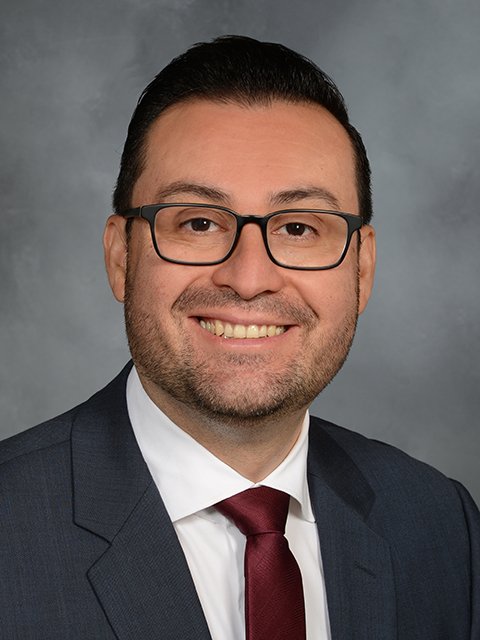
Jim G. Castellanos, MD, PhD, MFA
PGY6, Assistant Professor of Anesthesiology
As an immunologist, Dr. Jim Castellanos is focused on understanding how the human body maintains skin epithelial barrier immunity. In particular, Dr. Castellanos aims to understand how skin-resident immune cells interact with the skin stem cells to promote epithelial tissue regeneration, microbiome homeostasis and long-lived epigenetic inflammatory memory.
He received a Bachelor of Arts in biology from Claremont McKenna College and an MFA in creative writing from University of Arizona. Dr. Castellanos earned his MD and PhD degrees at the Tri-Institutional MD-PhD Program at Weill Cornell Medicine, The Rockefeller University and Memorial Sloan Kettering Cancer Center. He completed his anesthesiology residency at NewYork-Presbyterian Hospital/Weill Cornell Medical Center.
Dr. Castellanos is currently a postdoctoral fellow in Dr. Elaine Fuchs’ laboratory at Rockefeller University. He was also selected as a 2024 Hanna H. Gray Fellow by the Howard Hughes Medical Institute (HHMI).
Contact: jgc2001@med.cornell.edu
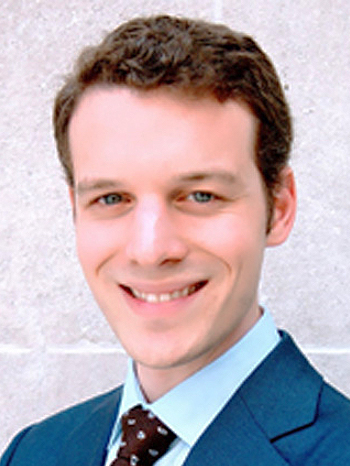
Andrew Milewski, MD, PhD
PGY6, Assistant Professor of Anesthesiology
Dr. Milewski is interested in extracting useful information from underutilized intraoperative data streams. He is currently working to develop algorithms that may enable clinicians to make earlier decisions about targeted transfusion therapies. Dr. Milewski also aims to better characterize the human rights abuses suffered by refugees and asylum applicants in the hopes of improving treatment modalities for survivors of torture.
Before residency, Dr. Milewski completed the Weill Cornell Medicine/The Rockefeller University/Memorial Sloan Kettering Cancer Center Tri-Institutional MD-PhD program. His graduate work focused on understanding robust signal processing by mechanosensory hair bundles in Jim Hudspeth's lab at The Rockefeller University, at which time he was supported by the Ruth L. Kirschstein National Research Service Award (F30).
Dr. Milewski also served as the Co-Executive Director of the Weill Cornell Center for Human Rights and Co-Chair of the Physicians for Human Rights National Student Advisory Board during his graduate studies.
Contact: anm2119@nyp.org
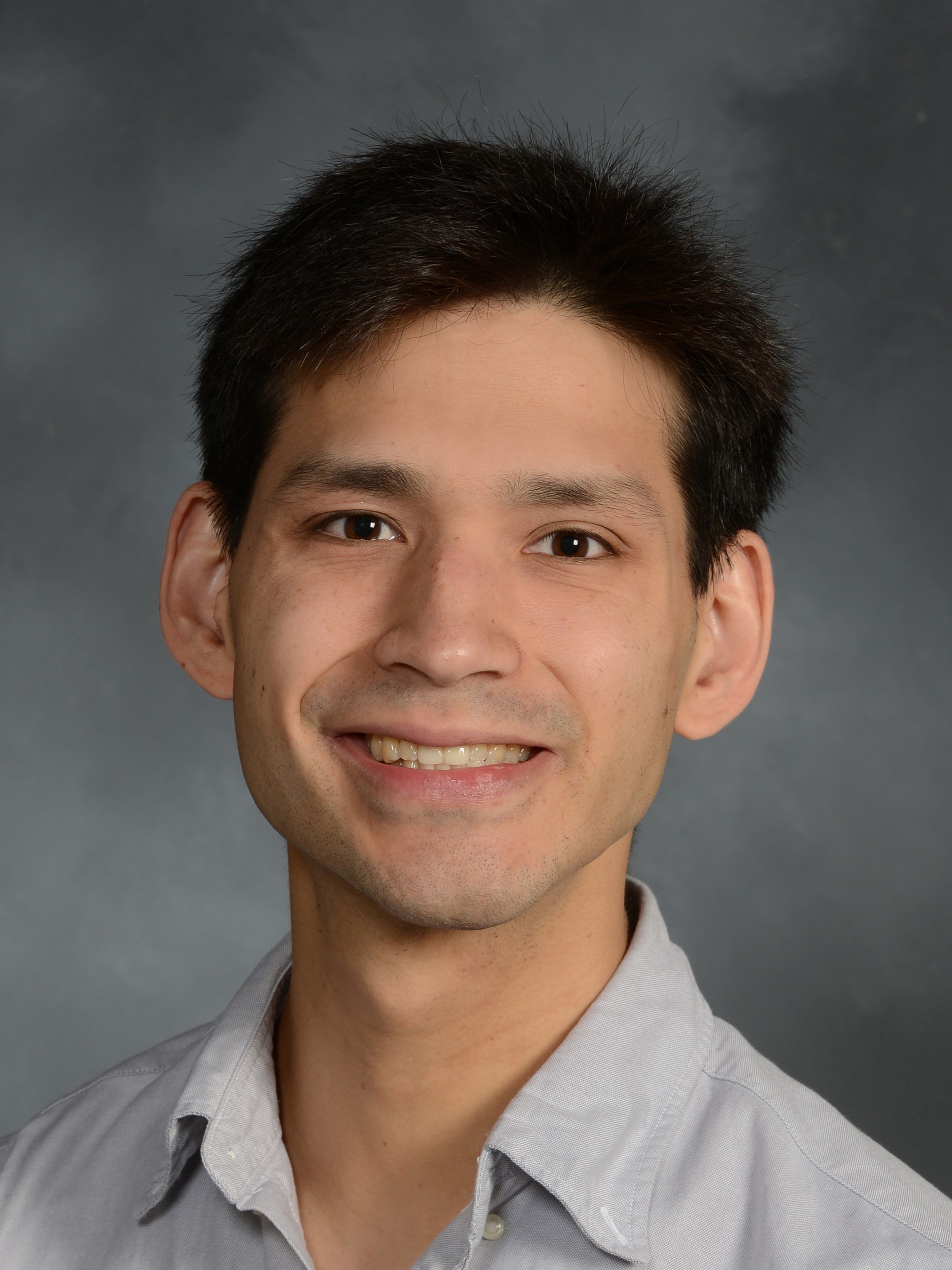
David Eric Kersen, MD, PhD
CA-II-PGY3 (Class of 2027)
Dr. Kersen is interested in the mathematical and biophysical constructs underlying brain activity. He plans to utilize techniques and concepts from dynamical systems theory, statistical mechanics, and mathematics to investigate how to represent these constructs as well as how they are perturbed under the effects of anesthetics and psychotropic agents. He is also interested in the application of these findings to better understand the brain in disease states, especially in neuropsychiatric conditions like schizophrenia and depression. Dr. Kersen completed his MD and PhD training at the University of Pennsylvania, where his graduate work focused on mathematical modeling of the murine olfactory bulb, in particular exploring the nature of structure-function relationships.
Contact: lfq9001@nyp.org
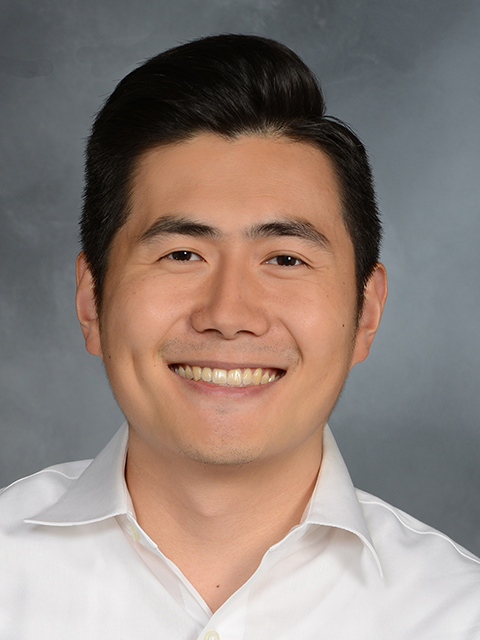
Eric Sung, MD, PhD
CA-I-PGY2 (Class of 2028)
Dr. Sung's research interests lie in the development of methods to extract novel information from the various perioperative data streams ranging from physiological time series to ultrasound imaging data. He aims to determine novel computational biosignatures from this rich, multimodal data capable of risk stratifying post-operative patient adverse outcomes and personalize patient treatment decisions. Prior to residency, Dr. Sung completed his MD/PhD training at the Johns Hopkins School of Medicine. He earned a PhD in biomedical engineering working in the computational cardiology lab under the tutelage of Dr. Natalia Trayanova. His graduate work focused on the development of multi-scale, whole-heart models to simulate human cardiac electrophysiology for the diagnosis and treatment of ventricular arrhythmias, which was supported by an AHA predoctoral fellowship grant.
Contact: cwz9005@nyp.org
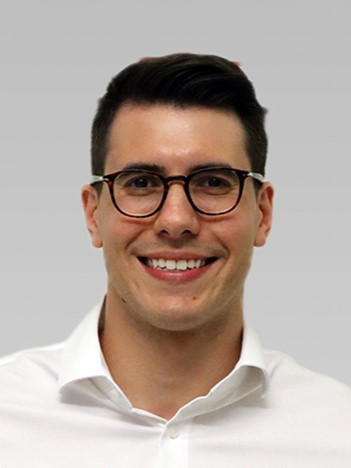
Alexandru Barbulescu, MD, PhD
Intern-PGY1 (Class of 2029)
Dr. Barbulescu’s research interests are at the interface between immunology and anesthesiology, including investigating neuroimmune interactions contributing to the development of chronic pain and understanding the effects of various anesthetics on immune cell function. Before residency, Dr. Barbulescu completed his training at the Weill Cornell/Rockefeller/Sloan Kettering MD-PhD Program. He earned a PhD from the Rockefeller University, where he worked with Dr. Gabriel Victora on the regulation of antibody responses in response to immunization. His graduate work was supported by an NIH F30 Ruth L. Kirschstein National Research Service Award.
Contact: alb2073@nyp.org

Camila Villasante, MD, PhD
Intern-PGY1 (Class of 2029)
Dr. Villasante is interested in the neural mechanisms of anesthetics, particularly in how anesthetics modulate consciousness during the different phases of anesthesia, from induction through maintenance and eventual emergence. Prior to residency, Dr. Villasante completed her MD-PhD training at the Weill Cornell/Rockefeller/Sloan Kettering Tri-Institutional MD-PhD program. Her graduate studies with Dr. Jim Hudspeth at The Rockefeller University focused on a protein in the inner ear that is critical for human hearing. Her graduate work was supported by a Ruth L. Kirschstein National Research Service Award (F30) from the NIH.
Contact: cav2019@nyp.org
Former Scholars
.
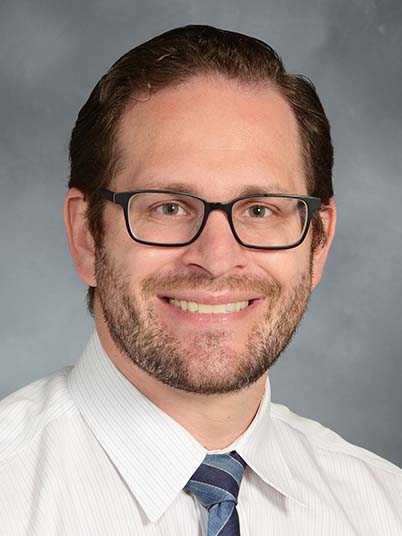
Richard Boyer, MD, PhD
Dr. Boyer is an instructor in anesthesiology in the Department of Anesthesiology at Weill Cornell Medicine. A graduate in biomedical engineering from John Hopkins University, he attended the Medical Scientist Training Program at Vanderbilt University School of Medicine where he completed his PhD studies in biomedical engineering. He completed his residency in anesthesiology at Massachusetts General Hospital. He is also currently a postdoctoral associate at Cornell Tech where he is developing artificial intelligence software for perioperative risk stratification.
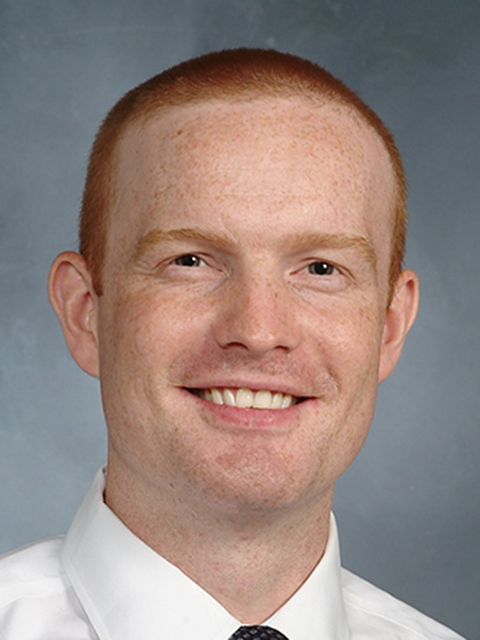
Daniel Cook, MD
Dr. Cook seeks to better understand the molecular mechanisms driving neurotransmitter release in the central nervous system (CNS) and how anesthetic agents alter synaptic physiology. As the target organ of general anesthesia is the brain, a deeper understanding of CNS physiology at the molecular level and its disruption by anesthesia could lead to improvements in drug design and help elucidate the neural processes underlying consciousness.
Dr. Cook began his work in the Edwin H. Steele Laboratory at the Massachusetts General Hospital under Rakesh Jain, PhD to develop a video-rate, multiphoton microscope for in-vivo cancer biology research. As a medical student at Weill Cornell Medical College, he studied the effects of volatile anesthesia on neurotransmitter release and the role of presynaptic calcium channel subtypes with Hugh C. Hemmings Jr., MD, PhD.
As a Van Poznak Scholar, he continued his research in synaptic physiology and its regulation by anesthetic drugs with Timothy Ryan, PhD, exploiting new technologies in microscopy and genetic optical tools that reveal neuronal activity.
PubMed
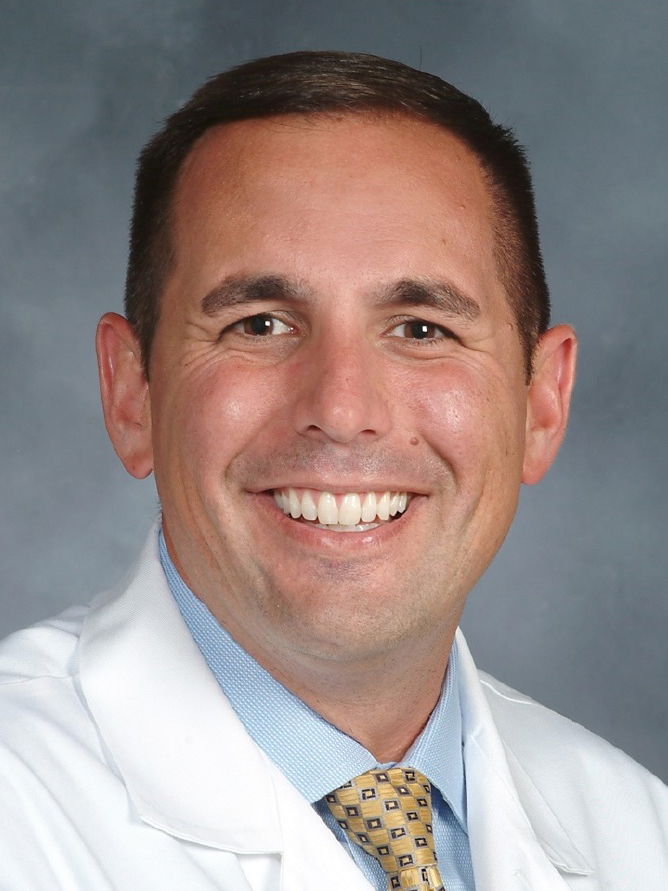
Peter M. Fleischut, MD
Dr. Fleischut is Group Senior Vice President and Chief Information and Transformation Officer at NewYork-Presbyterian (NYP). He oversees the strategic vision and management of enterprise information technology, lab operations, pharmacy operations, innovation, data and analytics, artificial intelligence, telemedicine, and cybersecurity.
Dr. Fleischut has led the development of NYP's award-winning digital health services and the implementation of clinical operations at the NYP David H. Koch Center, a world-class ambulatory care center. In his previous role as Senior Vice President and Chief Transformation Officer, he focused on creating a single electronic medical record across NYP and its affiliated medical schools, Weill Cornell Medicine and Columbia University Vagelos College of Physicians and Surgeons. Dr. Fleischut also led efforts to standardize care across NYP’s ten hospitals and hundreds of clinics and doctor practices, and oversaw all aspects of Graduate Medical Education (GME) for programs across the NYP enterprise.
Joining NYP/Weill Cornell Medicial Center in 2006, Dr. Fleischut previously served as Medical Director of Operating Rooms, Deputy Quality Patient Safety Officer, founding Director of the Center for Perioperative Outcomes, Vice Chair, Chief Medical Information Officer, Chief Innovation Officer, and Chief Medical Operating Officer.
In 2016, he became Vice Chair of the Department of Anesthesiology at Weill Cornell Medical College, where he is an Assistant Professor of Anesthesiology. He is a graduate of Jefferson Medical College and the Wharton Program for Working Professionals at the University of Pennsylvania. Dr. Fleischut has received numerous awards and honors, including NYP’s Physician of the Year, Modern Healthcare Up and Comers, Becker’s Hospital Review 40 under 40, and the American Telehealth Association President’s Award.
PubMed | Google Scholar
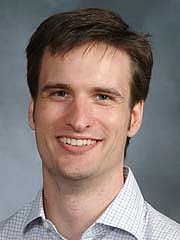
Andrew Hudson, MD, PhD
Dr. Hudson has a long standing research interest in the neural substrates of consciousness. His doctoral work focused on the effects of attention on the encoding of visual information in extrastriate cortex of awake behaving macaques with Keith Purpura and Jonathan Victor. Also, while in graduate school, he helped developed a non-human primate model of the effects of deep brain stimulation on arousal networks with Nicholas Schiff. After completion of the Van Poznak Scholarship, Dr. Hudson started his own laboratory at the David Geffen School of Medicine at UCLA.
PubMed | Google Scholar
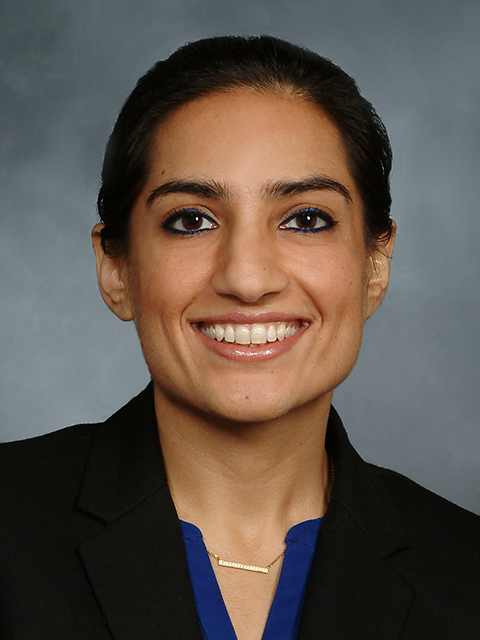
Gunisha Kaur, MD, MA
Dr. Kaur’s specialty is in global health and human rights. She did her medical training at Weill Cornell Medical College, her residency at NewYork-Presbyterian/Weill Cornell Medicial Center, and her master’s degree in medical anthropology at Harvard University.
Her research focuses on refugee trauma, particularly the accurate diagnosis of chronic conditions such as pain and cardiovascular disease, early intervention and treatment, and innovative pathways to rehabilitation including the use of both standard and cutting-edge technologies such as digital tools.
She is Director of the Global Health Initiative in the Weill Cornell Medicine Department of Anesthesiology, where she is also Program Director of the Global Health Fellowship Program. Dr. Kaur is also Medical Director of the Weill Cornell Center for Human Rights, which provides evaluations of refugees seeking asylum in the United States and also Director of the Human Rights Impact Lab.
PubMed
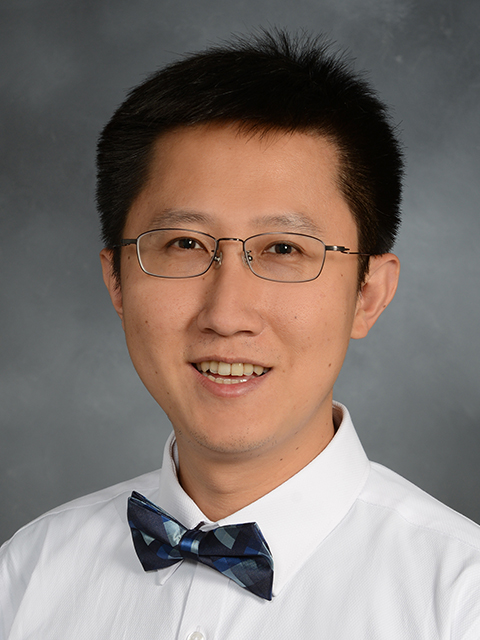
Jyun-you Liou, MD, PhD
Dr. Liou is interested in understanding the mechanisms of anesthetic-induced brain activity in order to search for novel applications of anesthetics in diagnosing and managing neuropsychiatric disorders. He received his MD from National Taiwan University and PhD at Columbia University, where he worked with Drs. Larry Abbott and Catherine Schevon studying epileptic brains. At NewYork-Presbyterian/Weill Cornell Medical Center, he collaborated with Dr. Theodore Schwartz from the Department of Neurosurgery and Dr. Alipasha Vaziri from Rockefeller University, using in vivo fluorescence imaging to study anesthetic-induced brain rhythms in transgenic animals. He spent his PGY5 year at the University of Washington for his pediatric anesthesiology fellowship, during which he used intracranial electroencephalography to human consciousness. Currently, he is establishing a new systems neuroscience lab at Weill Cornell, aiming to study sleep and anesthetic-induced brain waves.
Awards and Recent Publications:
- Mitchell Alan Ross Prize (2021)
- Google Scholar
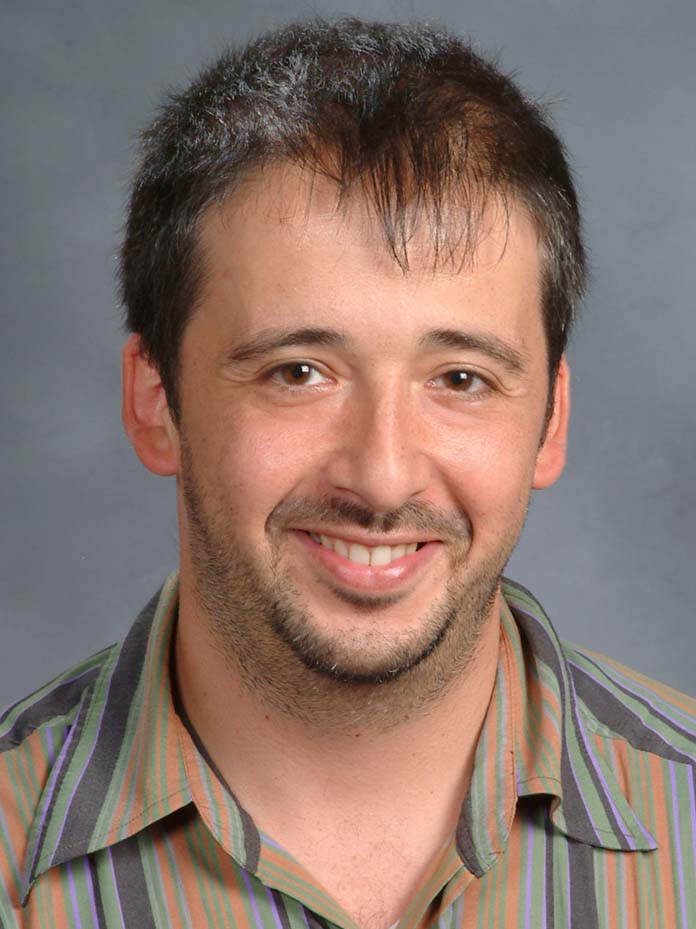
Alex Proekt, MD, PhD
Regulation of the level of consciousness is one of the fundamental functions of the nervous system. Yet it is poorly understood. Despite our ignorance of the basic mechanisms that underlie the regulation of the level of consciousness we are able to extinguish and then swiftly restore consciousness using a variety of general anesthetics. His research project is focused on trying to delineate the neurophysiological processes involved in emergence from general anesthesia. Dr. Proekt believes that investigation of emergence of consciousness may provide insight into which processes in the brain are required for maintenance of consciousness and may help identify neuronal correlates of consciousness.
Specifically he is investigating a hypothesis that sensory stimulation delivered to a lightly anesthetized subject may elicit a state transitithalamocortical networks that results in emergence of consciousness. Dr. Proekt is investigating this hypothesis in the Laboratory for Neurobiology and BehaviRockefeller University in collaboration with Dr.Hemmings' laboratory at Weill Cornell Medical College. They are using a combination of behavioral neurophysand mathematical approaches to define the processes involved in emergence of consciousness using mice as a model system. They are then planning to exploit the ability to generate transgenic animals to address the molecular and genetic pathways involved in emergence.
PubMed | Google Scholar
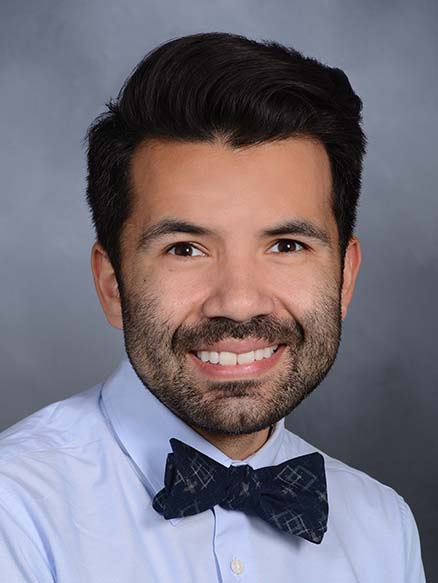
Seyed A. Safavynia, MD, PhD
Dr. Safavynia is interested in understanding the neural mechanisms underlying altered conscious states, with interests in perioperative neurocognitive disorder and delayed recovery of consciousness in critically-ill COVID patients. Together with Drs. Nicholas Schiff and Jonathan Victor, he is combining non-invasive neuromonitoring techniques (electroencephalography (EEG), functional near-infrared spectroscopy (fNIRS)) along with clinical and outcomes data to investigate determinants and neurophysiological correlates of such neurocognitive alterations.
Dr. Safavynia completed his PhD in systems neuroscience with Dr. Lena Ting (Emory University); his thesis work focused on hierarchical neural control of multi-muscle coordination patterns necessary for balance control. While in residency, he helped characterize EEG patterns during emergence from anesthesia and their modulation by GABAergic agents with Dr. Paul García (Columbia University). He completed a fellowship in neuroanesthesiology as part of his Van Poznak Scholarship and is an Assistant Professor in the neuroanesthesiology division at Weill Cornell Medical College. He is also an Associate Program Director for the anesthesiology residency at Weill Cornell Medical College.
PubMed | Google Scholar
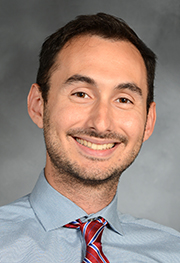
Joseph Scarpa, Jr., MD, PhD
Dr. Scarpa develops and applies machine learning methods to better understand complex systems, from gene networks to health care systems. His work focuses on the application of biotechnology, genomics, and the digital universe to clinical practice, and includes contributions to the understanding of sleep regulation, stress susceptibility, addiction, and neurodegenerative disease. He is interested in better ways to monitor and model patients and disease to optimize perioperative care, and he is currently exploring the molecular effect of anesthetics in diseases like cancer, depression, and Alzheimer’s disease. Dr. Scarpa received his MD and PhD from the Icahn School of Medicine at Mount Sinai, where he supported by the Ruth L. Kirschstein National Research Service Award (F30). He is also a Truman National Security Fellow and FASPE Fellow for Medical Ethics, focusing on the sociopolitical impact and ethical challenges of artificial intelligence.
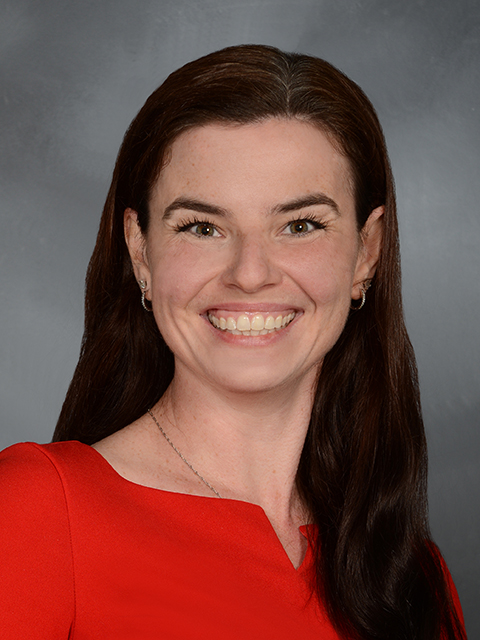
Julia Scarpa, MD, PhD
Dr. Scarpa seeks to develop a better understanding of cerebrovascular physiology under duress, in particular during operative stress and during spaceflight. She studies how pre-existing medical comorbidities and autonomic dysfunction affect perioperative hemodynamic stability and outcomes, and uses this model as an Earth-based analog for studying the effects of spaceflight-induced autonomic changes on cerebrovascular physiology. She is interested in developing medical contingencies for both space tourism and mission-based spaceflight. To this end, she is also interested in developing and validating devices that can be used to monitor physiology remotely. Dr. Scarpa has a background in neuroprosthetics and neuromonitoring -- her doctoral work focused on cortical decoding in a rodent model of neuroprothestic use, examining how the cortex responds to sensory stimuli while awake and while under anesthesia and how the cortex rewires during learning. This work was supported by an NIH F30 award, and she received her MD and PhD from New York University School of Medicine.
Recent Publications:
Scarpa J, Parazynski S, Strangman G. Space exploration as a catalyst for medical innovations. Front Med. 2023 Jul 19;10:1226531. doi: 10.3389/fmed.2023.1226531
Scarpa J, Wu CL. The role for regional anesthesia in medical emergencies during deep space flight. Reg Anesth Pain Med. 2021; 0: 1-4. doi:10.1136/rapm-2021-102710
Tommer N, et al. Lateralization of subcortical functional connectivity during and after general anesthesia. Br J Anaesth. 2021; Epub ahead of print.
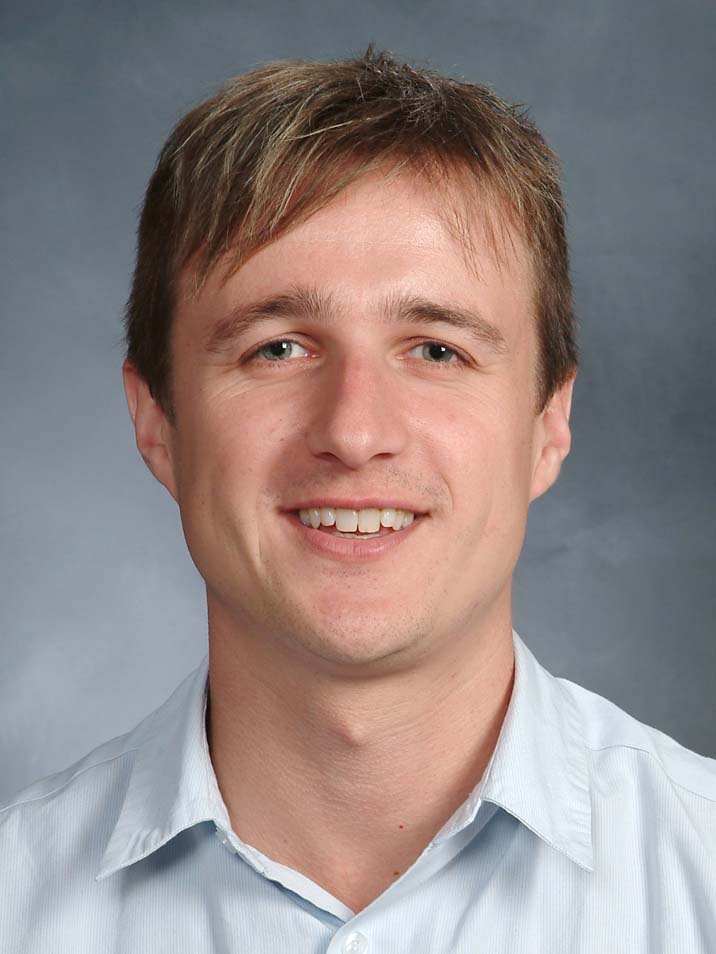
Kingsley Storer, MBBS, PhD
Dr. Storer's previous research work investigated the use of sensitizing agents in order to improve the efficacy of radiosurgery in the treatment of cerebral arteriovenous malformations.
He is currently interested in developing a biologically relevant neural network model of the thalamocortex in order to study systems effects of anesthetic agents. He will be mentored by A/Prof George Reeke of the Laboratory of Biological Modelling at Rockefeller University.
PubMed | Google Scholar
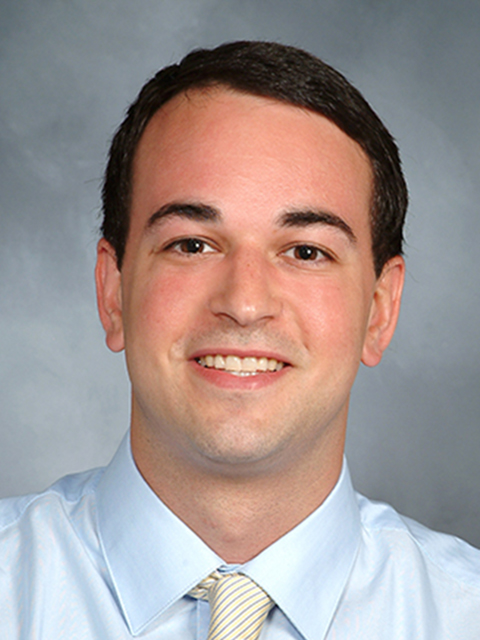
Robert White, MD, MS
Dr. White is interested in the utilization of “big data” and administrative data sets to explore the association between social determinants of health—primary payer insurance status, race, and median income — and post-surgical outcomes (inpatient mortality, post-operative complications, length of stay, total charges, and readmissions) after common orthopedic, cardiac, and obstetrical procedures. As part of the Center for Perioperative Outcomes, he co-supervises a multidisciplinary research team charged with examining the racial and economic disparities in the healthcare system and the impact of the recent Medicaid expansion (under the Patient Protection and Affordable Care Act). Additional projects have explored (separately) the association between 1) pre-existing opioid use disorder and 2) sickle cell disease status, and post-operative.
PubMed



